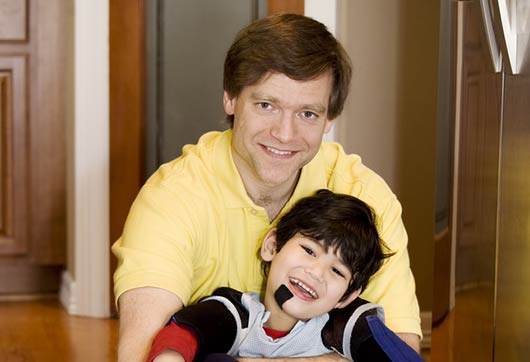
Raising an ADHD child is not easy. But advocating for your ADHD child in school falls squarely under parental responsibility, therefore, the sooner you figure out how to be your child’s biggest advocate, the better off your child will be.
Attention Deficit Hyperactivity Disorder (ADHD) is the most commonly diagnosed behavioral disorder in childhood. People with ADHD have trouble paying attention, controlling impulsive behaviors, and in some cases, are overly active, according to the Center for Disease Control. The disorder affects about 9% of children between the ages of 4 and 17. And while Hispanic children are less likely to be diagnosed than white or black children, that doesn’t mean that the condition doesn’t affect our children. What happens is that some Hispanic families are less likely to seek medical assistance when children seem overactive or inattentive, and are more likely to chalk it up to them just being kids.
Read Related: What’s Behind the Huge Rise in ADHD Diagnoses?
IF YOUR CHILD HAS BEEN DIAGNOSED
Don’t be afraid to talk about it. Although the attitude of our community towards mental health and behavioral issues is slowly changing, many Hispanics still prefer to deal with certain issues in private, which puts us at a disadvantage when it comes to obtaining much needed help. Unless we are willing to be vocal, our ADHD children won’t be afforded all of the opportunities they deserve. Talk to your child’s teacher, principal, coach and other parents about steps that can be taken to help your kid. You can’t expect others to feel comfortable talking to you about potential problems or issues with your child if you don’t make it obvious that you are comfortable and your door is open.
Get everyone involved and on the same page. Let school officials know of any lifestyle changes and if there is medication involved, keep them up to date with it too. Ask them to keep you informed of any noticeable differences in your child’s behavior. Ask the teacher for weekly phone meetings or emails to discuss what’s working and what’s not. Educate yourself so you can educate the other adults involved with your child on a daily basis. Be knowledgeable of what schools can do to help ADHD kids so you can ask for those benefits if your child’s needs aren’t being met. ADDers.org is a good resource.
Talk to your child. Ask if there are certain times of the day or certain situations that make it easier or harder to focus. If your child is concerned with specific issues, such as a desk assignment or the time allotted for tests, take your child seriously and address these issues with the teachers. Your child needs to know that you are there to help and to come to you with concerns.
Of course, we would like to see schools, teachers and coaches being proactive when dealing with ADHD children. But often they don’t know how to deal with them and already are stretched thin. The truth is that it is your responsibility as the parent of an ADHD child to stand up for your kid and ensure they are being given the best opportunities for learning and advancement. The more you know about the condition the better you’ll be able to help others, including your child, understand that ADHD, while uncurable, can be successfully managed.











